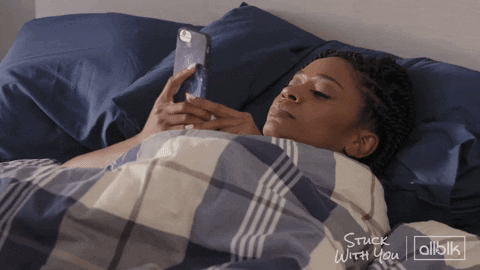YouTube’s Mental Impact Might Be More Severe Than You Thought
A new study reveals the toll heavy use can take on certain segments of the population. Giphy
Giphy
News that is entertaining to read
Subscribe for free to get more stories like this directly to your inboxCouch potatoes in previous generations might scroll mindlessly through cable channels, but today’s young people tend to gravitate toward YouTube for their content fixes.
While neither sedentary lifestyle is particularly healthy, a new report found that excessive exposure to YouTube could take a detrimental toll on mental and emotional health.
The data is in
Researchers from Griffith University and the Australian Institute for Suicide Research and Prevention released their findings in a report that found anxiety, depression, and loneliness were more common among frequent YouTube users.
Here are a few key takeaways:
- The negative consequences were most pronounced in those under the age of 29.
- Watching content about the lives of other people is also a trigger for such effects.
- YouTube doesn’t always remove content related to self-harm or suicide.
Researchers considered two or more hours per day on YouTube as “high-frequency” consumption and anything over five hours constituted “saturated use.”
Some positive impacts
In narrow applications, the study found that frequent use of YouTube can have a good (or at least neutral) effect on users.
Study author Luke Balcombe said that relationships between creators and their fans “can fill a gap for people who, for example, have social anxiety, however, it can exacerbate their issues when they don’t engage in face-to-face interactions, which are especially important in developmental years.”
Expert recommendations
Based on the findings of the study, Balcombe and his team determined that YouTube needs to do more to reduce the availability of harmful content.
Beyond that, the researchers found that artificial intelligence could be used to limit exposure to such material as well as to reduce the overall use of the platform.
“We recommend individuals limit their time on YouTube and seek out other forms of social interaction to combat loneliness and promote positive mental health,” Balcombe said.
 Why Is The Aging Voyager 1 Probe Sending Back Incoherent Communications?
It's been speaking gibberish for a few months and officials are concerned.
Why Is The Aging Voyager 1 Probe Sending Back Incoherent Communications?
It's been speaking gibberish for a few months and officials are concerned. One Woman’s Massive Donation Is Wiping Out Tuition At This Medical School
Her inheritance came with the instruction to do "whatever you think is right."
One Woman’s Massive Donation Is Wiping Out Tuition At This Medical School
Her inheritance came with the instruction to do "whatever you think is right." Woman’s Pets Will Inherit Her Multimillion-Dollar Fortune, Not Her Kids
It's not the first time four-legged heirs were named in a will.
Woman’s Pets Will Inherit Her Multimillion-Dollar Fortune, Not Her Kids
It's not the first time four-legged heirs were named in a will.